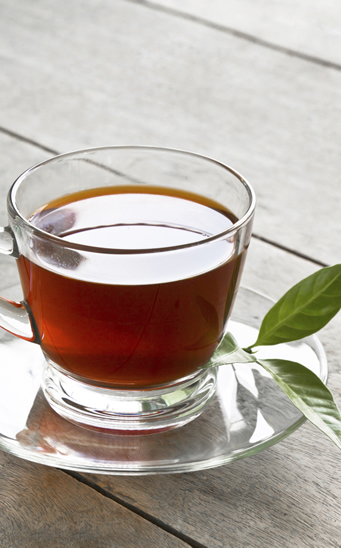
Tea
Tea is a low calorie and exciting drink that provides hydration and prevents disease. However, it should be consumed in moderation.
The tea is an infusion prepared from the young leaves and healthy buds of the Chinese tea bush (Thea sinensis) . It is a very popular drink, widely consumed throughout the world. The habit of drinking tea has acquired a social character , it has been established as a national drink in countries such as Great Britain and Japan where the ritual of preparing and serving tea is part of their cultural tradition.
The quality of the tea depends both on the harvesting of the leaves and the processes of their preparation as well as their subsequent conservation.
To maintain its aroma and properties, we must keep it in dry and hermetic containers, sheltered from light, air and humidity.
The varieties of tea
There are many commercial varieties of tea depending on the manufacturing process to which its leaves are subjected: green tea, black tea, oolong tea and scented tea .
- Green tea: Typically oriental, it is produced by drying the leaves at a high temperature, preventing fermentation. It is bitter and astringent, rich in tannins and its amount of caffeine is slightly less than that of black tea.
- Black tea: Consumed mainly in the West, if it undergoes fermentation and stands out for its caffeine content slightly higher than green tea, but with a milder taste.
- Oolong variety: It is intermediate between the previous two since it has undergone partial fermentation.
- Scented tea: It is a tea flavored with flowers (rose, jasmine), fruits (bergamot) and spices (orange and cinnamon).
Nutritional value of tea
Tea is fundamentally a drink with a pleasant taste and slight stimulating effects that allows us to hydrate our body adequately, but does not provide us with any nutritional value.
The caffeine present in the tea leaf in amounts not exceeding 5% is capable of stimulating the nervous and cardiovascular system without causing excitement , which is why it is said that tea is less harmful to health than coffee.
Tea leaves also contain tannins, essential oils, polyphenols , B vitamins , carotenes , folic acid and minerals such as calcium, iron, fluorine, phosphorus, magnesium, potassium.
Tannins confer color and astringency as well as exerting beneficial effects on the body. Its presence partially limits the assimilation of caffeine, making tea less exciting than coffee.
The essential oils provide aroma and flavor and polyphenols, in addition to brightness and color intensity, act as antioxidants and protect against certain cancers.
What are the effects of tea on the body?
- It is a low-calorie and mineral-rich drink that allows our body to be adequately hydrated and replenishes the mineral losses caused by sweat.
- It is stimulating due to the caffeine it contains, but less exciting than coffee, since the action of caffeine is impeded by the presence of tannins.
- Its excessive consumption could cause a decrease in the assimilation of iron , but it is only significant in vegetarian diets.
- It prevents atherosclerosis by lowering cholesterol and fats in the blood, while helping to lower hypertension and protect against cancer . These actions are attributed to its polyphenol content, especially abundant in green tea.






















+ There are no comments
Add yours